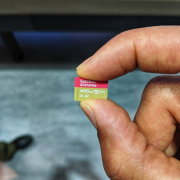How to Stop Your Pictures from Being Hacked from iCloud
Although having your personal photos shared on the Internet is highly unlikely, unless you’re famous, we don’t do ourselves any favours by syncing private pictures to online drives without thinking about it, and having passwords that anyone could guess after a few goes.
Make sure your iPhone isn’t uploading your photos to iCloud
The camera roll on your phone physically stores the photos you’ve taken on your device.
If Photo Stream is enabled, there will be another album in the Photos section, called My Photo Stream.
The photos in the My Photo Stream album are stored on Apple’s iCloud serves, with the tech giant keeping all the images you’ve taken in the last 30 days.
This is useful for accessing photos on other devices, or having automatic backups if you lose your phone – but it also makes it easier to have hackers access and leak your personal images.
To disable Photo Stream, tap Settings, then click on your Apple ID. Go to iCloud, tap Photos, then switch off the My Photo Stream feature.
Have a strong, unique password
Many people will use the same password for multiple accounts – so if you’re using ‘password123’ to log into your Apple ID, Facebook, Twitter and Hotmail, a hacker will have access to all of these accounts by knowing a single password.
To change your Apple ID password, visit My Apple ID, sign in, then head to the Security section to change your password.
Use two-step authentication
Apple already offers this for iCloud users, and it’s also available on sites such as WordPress.
Every time you log into an account, a code will be sent to your phone – and this code changes after every login attempt.
In other words, a hacker would have to be in possession of your phone to get the code for your account right.
Use fake answers to security questions
If you have a public presence, with personal information such as your mother’s birthplace or favourite food easily accessible via Google search, or you’re being hacked by someone who can find out personal information another way, use random answers to security questions that they’d never guess.









